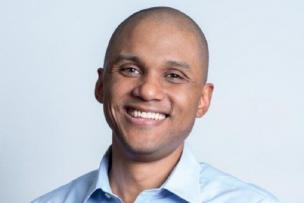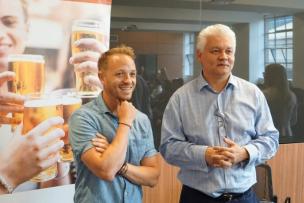Under pressure from leaders in big data, among them SAP, Google and Amazon, the big accountancy firms are transforming their function, by investing in whizzy new technologies, striking partnerships with digital businesses, and retraining their auditors to master high-tech tools.
For KPMG, this transformation has already taken root. The Big Four professional services firm announced a deal with Formula One’s McLaren to use predictive analytics in its audit work, spent £40 million on developing cloud software that enables clients to prepare their accounts online, and committed £20 million to developing the Centre for Advanced Business Analytics at Imperial College Business School.
Nick Frost, partner at KPMG in the UK, says in this interview with BusinessBecause that accountants must be masters of technology. He has a soft spot for MBAs, too, who bring “immense benefits” to the firm of 162,000 employees in 155 nations.
Will technologies such as cloud computing re-engineer parts of the auditing process?
The re-engineering has been taking place for a few years now, mostly fuelled by the use of data analytics.
Cloud is likely to have a significant impact in the future in terms of our audit process, but we expect its first usage would be limited to facilitating data storage and transfer.
Using cloud services for data transfer and storage would primarily make the whole process between data extraction and data processing more efficient and quicker. It is also likely to make the data more accessible across our global firm, which in-turn could lead to more powerful and effective audits.
With easier data extraction and access, this would facilitate an increased frequency of us performing our procedures. This could deliver strong benefits, but calling it re-engineering would be a step to far, I think.
Looking even further ahead, there might be new cloud-based opportunities, [such as] accessing data analytics tools through a software-as-a-service model, but in that case we would first need to be able to address the stringent requirements around security and reliability of these tools, because for us as auditors, it remains a priority that the data, and the related data analytics results, remain secure.
Must accountants be retrained to master high-tech auditing tools?
I don’t believe we should be retrained to place reliance on high tech auditing tools without the richness of the experience and knowledge that is so valuable.
[But] we must be retrained to be masters at understanding what high-tech auditing tools can do and then how to apply them in a relevant way. It is the mind-set first that needs to be retrained, to be risk-focused through data.
Also, we don’t need to be the ones who necessarily understand everything about all things technology. Yes, of course we need to know how to use the tools. But we don’t need to be the masters, say, of the computer coding that creates them.
Part of the interpretation and challenge is understanding the client, its business and strategy, and also its systems.
Do you value business school programs such as the MBA to provide skilled talent?
We value talent from everywhere it comes. And should not limit it or prioritise certain areas. Businesses are diverse and our talent should follow suit. There are immense benefits from those who come from formal programs such as MBAs, and certainly we need to tap that source actively, like we should all sources of talent.
How is the use of data analytics reshaping the accounting division?
Technology and data are reshaping everything that everyone does. It is as relevant to an accountant as it is to the marketer trying to spot trends.
Through technology we can be better informed, more focussed and therefore more effective and valuable in what we do.
For accounting, it’s the focus that can really add value. Firstly, we can now get the full picture over a set of data as opposed to extrapolating samples statistically onto the dataset.
These days we not only know what is in there, but know exactly where it is, and how much of it is there. We call that “blow[ing] away the hay to find the needle”.
This is very powerful because it makes our responses more focused and our opinions more informed.
Secondly, it’s important to note [that] the accountant is not replaced by effective data analytics, as it is enhancing the effectiveness of the accountant.
This is the watershed moment we’ve been waiting for that should be embraced quickly and fully.
What threat does the accountancy profession face from digital groups such as SAP, Google or Amazon?
This threat is real if we don’t take lead in this area. We are the best at accounting today, but not the best at data analytics. The likes of Google [and] Amazon clearly are leading in terms using data, but not accounting.
Somewhere the two must meet and we need to enable each other, as opposed to cannibalizing each other. The key will be to harmonize the two.
At KPMG, our alliances with McLaren and Imperial College highlight our desire to get the best of both worlds and bring value to the profession and stakeholders.
But we need to be aware that technology and the world move fast and so we cannot afford to be complacent.
To say we can industrialize or automate accounting is only true up to a point….There is a risk if the traditional auditor is replaced completely. But also if the traditional auditor is not replaced at all.
Student Reviews
Imperial College Business School
RECAPTHA :
61
dd
61
c8








